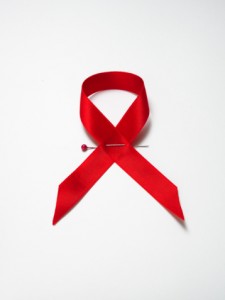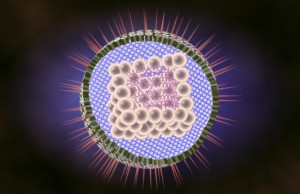Finding out that you have a sexually transmitted disease can be a devastating personal injury. While some STDs — such as syphilis, gonorrhea, and chlamydia — are bacterial and thus relatively easy to treat with antibiotics, other STDs like herpes, human papillomavirus (HPV), and HIV/AIDS are much more difficult to treat and can have serious adverse physiological and psychological effects. In cases of incurable STDs, such as herpes and HIV/AIDS, a person who has been unknowingly infected by a partner may have the legal right to seek compensation for their suffering.
STDs and the Law
In some cases, it may be possible for a person infected with an STD to seek legal remedy for their damages and suffering.
Criminal STD Transmission
In many states, failure to disclose to a sexual partner that you have a sexually transmitted disease such as herpes or HIV/AIDS is grounds for criminal prosecution or a civil lawsuit. In roughly half of U.S. states, it is a felony for a person with HIV/AIDS to willfully expose another person to this disease via sexual activity. In some states, the law is so broad as to consider it unlawful for a person to “conduct themselves in a manner likely to transmit the disease.” When a criminal STD case is successfully prosecuted, the guilty party may face up to eight years in prison for their crime.
 It is important to note that only under specific circumstances might it be considered a criminal offense to infect another person with a serious STD such as HIV/AIDS. “Willful exposure” laws typically apply only to persons who have intentionally affected others through unprotected vaginal or anal sexual activity. The accused person must know they have HIV/AIDS, must have failed to tell their partner of their disease status and must have had the specific intent of infecting the other party.
It is important to note that only under specific circumstances might it be considered a criminal offense to infect another person with a serious STD such as HIV/AIDS. “Willful exposure” laws typically apply only to persons who have intentionally affected others through unprotected vaginal or anal sexual activity. The accused person must know they have HIV/AIDS, must have failed to tell their partner of their disease status and must have had the specific intent of infecting the other party.
Civil STD Lawsuits
In some cases, a person infected with a serious sexually transmitted disease may have the legal right to seek monetary damages. In these cases, the injured person may file an STD lawsuit on the grounds of battery, fraud, negligence and/or the infliction of psychological and emotional distress.
Pursuing a lawsuit over a sexually transmitted disease is a serious decision that requires careful consideration of both legal and non-legal factors. In most cases, curable STDs—such as syphilis, gonorrhea, chlamydia, urethritis, and some cases of genital warts—do not provide sufficient grounds for legal action because the “damages” are not considered “economically viable.”
However, several cases have been successfully won by those infected with a serious STD.
For example, in 2005, an Atlanta Falcons quarterback was sued by a 26-year-old Georgia woman who claimed the football player had infected her with herpes in 2003. In this herpes lawsuit, the woman sought damages for unwanted physical contact, pain, suffering and potential future medical complications. She allegedly filed this STD lawsuit after the football player refused to help her deal with the symptoms caused by this disease. At first, the player denied knowing that he had herpes, but later apologized to the woman. This suit was settled in the woman’s favor for unspecified monetary damages.
In another STD case, a Missouri appeals court ruled that an unmarried person may recover monetary damages for the negligent transmission of herpes. In the 1990s, a New York court ruled that wrongful transmission of an STD was legitimate grounds for a lawsuit in which compensation is sought from those responsible.
Legal Considerations in an STD Lawsuit
While the non-legal considerations in an STD case vary by individual, there are certain legal factors a person must bear in mind when considering an STD lawsuit. While this explanation is in not intended to be a substitute for legal advice, these are a few factors typically involved in an STD case:
-
Burden of proof
To be successful in an STD lawsuit, the plaintiff (that is, the person unknowingly infected with a serious STD) must prove that the defendant (the alleged “infector”) knew or should have known that they were infected with an STD. They must also prove that the plaintiff was unaware of the defendant’s STD at the time of the sexual encounter. Third, the plaintiff must show that they were infected by the defendant and no one else. A qualified attorney can examine your case to determine if your best options.
-
Type of STD
A person who has been infected with a curable STD may not have viable grounds for a legal claim. However, because diseases like herpes and HIV are incurable and cause significant damages, people negligently or willfully infected with one of these diseases may have the right to seek legal compensation. To learn more about STD cases, it is important to speak with a qualified attorney who can determine your rights and options.
-
Legal damages
In a civil case, an injured person may seek monetary compensation for all past and future losses associated with the injury. In cases of serious STDs, the victim may seek compensation for lifelong medical treatment, all medication costs associated with treatment and care, expenses related to high-risk pregnancy management (expecting mothers with herpes must typically have a cesarean section in order to avoid passing the disease to her child), pain and suffering, emotional damages and possibly even punitive damages.
-
Statute of limitations
In all civil suits, legal action must be taken within a specific period of time. In general, this time period begins when the person learns of their infection. In an STD case, however, the statute of limitations may begin at different times. For instance, it is up to the court to decide whether the statute begins at the time the STD was transmitted, the time the person first developed symptoms of the STD or the time the person is diagnosed with the disease. In order to learn more about the statute of limitations, it is important to speak with a qualified attorney as soon as possible. If you wait too long, you may forfeit your legal rights to seek compensation for your losses and suffering.
-
Settlement or trial
There are generally two ways a person can be awarded damages in an STD case: through a settlement, in which the defendant agrees to pay damages, or through a trial decided by a judge or jury. A large majority of personal injury cases (under which STD lawsuits fall), are settled out of court. To learn more about settlements and trials, it is important to speak with a qualified attorney about your specific case.
If you believe you have wrongfully acquired a sexually transmitted disease, you need to to speak with an experienced attorney to learn more about your legal rights and options. You may not have to suffer in vain: through an STD lawsuit you may be able to seek compensation for your losses and suffering. Our qualified STD attorneys are available to evaluate your case. We highly value the privacy and interests of our clients and promise to treat you with the utmost care, attention and respect. Please contact us to learn more about STDs and your legal rights.
Some Facts about Herpes and HIV/AIDS

There are two kinds of herpes simplex virus — HSV-1, which causes sores on the lips, eyes, face and mouth, and HSV-2, which causes genital sores — though this distinction is not always absolute. Herpes can also affect other parts of the body including the fingers, cornea and internal organs.
Herpes is a viral infection that causes recurring outbreaks characterized by small, fluid-filled, painful blisters on the affected skin or mucous membranes. Herpes goes through periods of latency, during which no sores may be present though the virus remains dormant in nerve cells. The virus can reactivate causing an eruption of painful sores. While the trigger is often unknown, herpes outbreaks can be brought on by menstruation, stress, immune system suppression, fever and physical trauma.
Transmission
Herpes is transmitted during skin-to-skin contact via either (1) direct contact with sores during vaginal, oral or anal sex with a person who has an active infection, or (2) contact with oral, genital or anal areas of chronically infected people during latent periods (when no sores may be visible).
Symptoms
Symptoms of herpes usually develop 2 to 12 days after exposure, although many people don’t have symptoms or aren’t aware of them until much later. Depending on the affected areas, a person may begin to develop tingling, itching, burning, discomfort and aching. Sores begin to develop 2 to 3 days later. During this period, a person may also experience malaise, fever, body aches, headaches, and general feelings of sickness. These initial outbreaks can last approximately 1 to 2 weeks. Reoccurring outbreaks often last approximately one week.
Diagnosis and treatment
It is fairly easy for a doctor to diagnose herpes during a physical examination. There is no cure for herpes though treatments are available to manage outbreaks. Once a person contracts herpes, it remains with them and they can pass the disease to other partners. Though less frequent, herpes can also be transmitted from a mother to her baby during vaginal birth.
HIV/AIDS
Like herpes, there are two types of viruses that can cause HIV, or the Human Immunodeficiency Virus: HIV-1 and HIV-2. AIDS, or Acquired Immunodeficiency Syndrome, is the most severe form of HIV.
Transmission. Transmission of HIV occurs when one person comes into contact with another person’s bodily fluid, which contains the virus or infected cells. Transmission primarily occurs via blood, vaginal secretions, semen and breast milk. It is extremely rare for HIV to be transmitted through urine, tears or saliva. The three primary means of transmission are:
- Injection or infusion of contaminated blood. This can occur during blood transfusions, needle sharing or an accidental prick with a contaminated needle. (In this latter circumstance, a person has a 1 in 300 chance of contracting HIV.)
- Sexual contact with an infected person. During this method of transmission, the mucous membranes lining the penis, vagina, rectum and mouth are exposed to HIV-contaminated bodily fluids.
- Transfer of the virus from a mother to a child before, during or after birth
The following factors increase the risk of HIV transmission:
- Contact between HIV-contaminated bodily fluids and torn or damaged mucous membranes (which can occur during sexual activity)
- One partner also has another STD, such as herpes, gonorrhea, syphilis or genital warts
Transmission of HIV CANNOT occur via:
- Casual and/or nonsexual contact at home, work, school or other public place
- Coughing or sneezing
- Mosquito bites
- An infected doctor or dentist (extremely rare)
Exposure to HIV doesn’t always lead to infection.
Symptoms. Most people experience no symptoms upon infection. However, within a few weeks of transmission, a person may experience fever, swollen lymph nodes, rash and/or fatigue for a few weeks. Even with no symptoms, a person can begin to spread the virus soon after they are infected.
